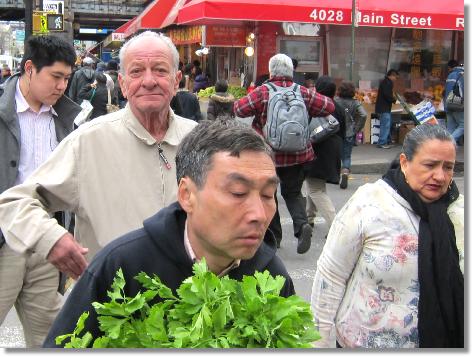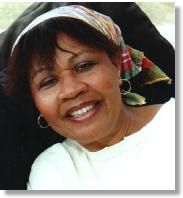 |
|
Chance, Synchronicity
& Mind-writing
Write About What is Outside Your Window

AWARENESS EXERCISE:
Sit comfortably (inside or out).
Turn your head as far as you can to the left.
Slowing scan the horizon, taking six minutes to arrive where you are looking as far to the right as possible. Try not to move your eyes in their sockets - just let the head move, as if the eyes were glued in place.
. . .
That morning was a morning like any other, so ordinary it was profound. It was sunny in some places and not in others, and the two (sunny, cloudy) occupied different parts of the sky quite comfortably; there was the green of the leaves, the red burst of the flowers from the flamboyant trees, the sickly yellow fruit of the cashew, the smell of lime, the smell of almonds, the coffee on my breath, Eunice's skirt blowing in my face, and the stirring up of the smells that came from between her legs, which I shall never forget, and whenever I smell myself I am reminded of her. The river was low, so I did not hear the sound of the water rushing over stones; the breeze was soft, so the leaves did not rustle in the trees.
The Autobiography of My Mother by Jamaica Kincaid
What do you see when you look out your window?
At Noon: Looking out my window I see four seagulls flying south, spaced evenly into a four-cornered square, as if they were carrying a sheet. And there is a sheet - the low-hanging clouds that still let blue sky and the tops of the Front Range peaks shine through. The clouds are thick and gray so that a robin perched on a bare-winter maple tree looks like a lonely gargoyle collecting moss. All the lawns are dormant muted dried-out. Only a white sign that says "Express Leasing" looks fresh, clean as snow. There is no snow. January is our driest month but we always forget that, expecting storms and avalanche. Instead we have dirty cars and open land with a thousand shades of brown. We have dried out garden hoses snaked in the corners of yards. We have plastic grocery bags pronged into tree branches. Styrofoam cups blown against retaining walls, beginning their long half-life of decay. We have cracked lips and bronchitis. In March, the storms come from the south, up from Mexico. Then we'll have snow.
Bill Scheffel 1- :25 PM, Sunday Jan 14th 2001
At Noon: I'm squinting, even with sunglasses on. To my right the window is unshuttered, big as a garage door. It floods the room with light; ultraviolet, infrared, white light. It's too bright. It's the snow. Eight inches on the lawn, sidewalk and car hoods. The Express Leasing sign is white along with everything. The sun hangs low and glistens through the dust on my windowglass. The sun hits my arm in a pattern the blinds cast and my arm hair is illuminated, it falls this way and that, like winter grasses a horse tromped through. My tea steams beside me. Even with car tracks and a thousand footprints on the sidewalk the stillness snow carries endures. But it is melting. A juniper branch breaks loose of a snowbank seeking heat the sun offers. The sidewalks are clear. Icicles drip. This is still an Aztec world, a world of sun and fair skies three-hundred-twenty-four days a year. The sun's refraction glitters on snow crystals. Is it the jewels conquistadors sought? There are millions of snow-flakes glistening, like the countless beings of the cosmos - in my morning chant I vowed to save them.
Bill Scheffel - 2:39 PM, Wednesday, January 17th 2001
At Noon: When I look out my window at noon I see snow. Snow on the ground, on the rooftops, snow in the air, yesterday's snow frozen on the sidewalk lightly covered by todays. Abby, my nine-year-old roommate, informed me that the entire story of the Grinch occurred on a snow flake. Today there are stories falling from the sky. A novel emerges, falls, and decays on the hood of my car. Missoula, Montana is covered in drama.
Lisa Thompson

Jamaica Kincaid
Jamaica Kincaid's life reads like an American Cinderella story: born and raised in poverty on the island of Antigua, West Indies; unloved by an unresponsive and often abusive mother who shipped her off to the United States at 17 to be an au pair (Kincaid insists on the word "servant" to describe her employment status); "discovered" on the streets of Manhattan by New Yorker columnist George Trow, who brought her into the fold of the magazine by printing one of her articles in the "Talk of the Town" section; became a celebrated fiction writer (Annie John, Lucy, The Autobiography of My Mother) and gardening columnist; married the son of legendary New Yorker editor William Shawn; and moved to the idyll of North Bennington, Vermont, where she now writes, gardens, teaches, and tends to her family, which includes two beautiful children. Read more...
- Marilyn Berlin Snell, Mother Jones Magazine
![]()
